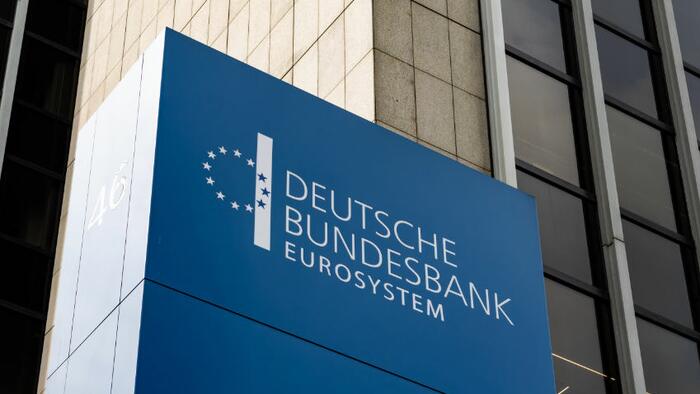
Submitted by Thomas Kolbe
With the creation of “special funds” and shadow budgets, the German government is evading fiscal transparency and undermining parliamentary control – a practice now sharply criticized by both the Bundesbank and the Federal Audit Office.
France, meanwhile, offers a warning of where this path leads. Political chaos in Paris culminated in fiscal humiliation last week when Fitch Ratings downgraded French sovereign debt from AA– to A+. France has maneuvered itself into a debt spiral, fueled by unchecked government spending and a misguided attempt to paper over social fractures with cheap credit.
Shadow Budgets and Statism
Germany, instead of avoiding France’s mistakes, appears determined to follow them. The fiscal discipline that characterized the postwar era is long gone. Across party lines, there is consensus in Berlin: with creative accounting tricks in the form of “special funds,” the debt brake can simply be ignored. The pinnacle of this new strategy is Chancellor Friedrich Merz’s trillion-euro debt package, which includes a €500 billion special fund.
The official justification is noble: defense spending must not be constrained by the bond market, and Germany’s crumbling infrastructure must be modernized. Packaged nicely in the media, the German public is expected to accept this new mountain of debt. After all, it is supposedly “for the greater good.”
But the German Taxpayers’ Association has labeled these special funds exactly what they are: a colossal debt-shuffling scheme. In practice, spending that should be tax-financed is quietly offloaded into shadow budgets that rely on new borrowing.
Manipulation Everywhere
The bond market itself has become little more than a derivative of monetary policy. Berlin, like its European neighbors, is clearly relying on the European Central Bank to keep the debt pile liquid and to step in whenever investors retreat.
Together with Brussels’ interventionism, this has created a political framework that openly encourages state overreach. Parliamentary oversight has all but disappeared. More than half of Germany’s GDP already passes through state hands – a level of intervention unthinkable a generation ago.
Berlin’s strategic consensus is striking: the very state that manufactured the crisis – through suffocating regulation, a self-inflicted energy disaster, bloated public finances, and crushing taxation – now claims it will solve the crisis by doubling down on intervention. The logic is that of a kleptocratic alcoholic in a bar: he runs a tab, borrows from his neighbors, and when generosity runs out, steals directly from the counter. Ultimately, it is this debt binge, this addiction to central planning, that will bring Germany down as both a political and economic model.
There is little meaningful opposition. Whether in parliament or in the intellectual sphere, critics lack the resonance to form a powerful public phalanx against this destructive policy path.
Criticism From Unlikely Quarters
Now, however, criticism has emerged from an unexpected source: the German Bundesbank. Rarely intervening in day-to-day politics, the central bank used its August monthly report to criticize the use of special funds. It warned bluntly that billions earmarked for local governments would likely be diverted to fill existing budget gaps rather than finance infrastructure and climate projects, as promised.
The Bundesbank also pointed to the absence of effective structures for efficiency control. By outsourcing vast parts of the federal budget into special funds, Berlin is obscuring the country’s true fiscal position and undermining budget discipline.
Criticism of runaway statism is nothing new. What is striking, however, is that core state institutions such as the Bundesbank are now joining the chorus. The Bundesbank projects Germany’s deficit will climb to 4% of GDP over the next two years – and that is under the optimistic assumption that the economy does not deteriorate further.
Its report leaves little doubt: the €100 billion in funds allocated to states and municipalities will likely be misused, rather than going into the infrastructure investments so loudly promised to the public.
The Firefighting State
Meanwhile, ordinary citizens – at least those still in the productive economy – waste their days in crumbling public transport, endless traffic jams on decaying highways, or waiting at the foot of collapsing bridges.
Germany, according to the Bundesbank, is operating in “firefighting mode” – patching up budgetary gaps and social spending programs instead of addressing structural problems. Much of the new spending, it warns, risks being consumed by short-term consumption rather than long-term investment.
The central bank has therefore proposed reforms to strictly limit borrowing capacity and to enforce transparency. At best, it sees special funds with their own borrowing authority as a temporary solution – one that would still require strict parliamentary oversight.
Support From the Federal Audit Office
The Bundesbank’s stance is reinforced by the Federal Audit Office, which for months has been calling for tighter, more targeted use of new credit funds. It has demanded that Berlin reserve the right to claw back funds that are misused – a measure based on bitter experience. Past budgets, from integration funds to inflated COVID-19 aid packages, were set high precisely so that excess money could later be diverted to plug welfare deficits.
The trick is simple: new debt is hidden from the public, while the true costs are shifted into the future. A short-term stimulus effect may provide the ruling coalition with breathing space against rising opposition – but at the price of structural decline.
Straight Toward Insolvency
That Berlin is using shadow budgets to buy time is hardly surprising. There is bipartisan conviction in the capital that creative accounting and oversized state demand can somehow solve both the fiscal crisis and the economic malaise.
But this is pure Keynesian delusion. The state as Leviathan, pretending to be omnipotent – and yet repeatedly colliding with reality. When central planning fails, the blame is always shifted onto the bond market, which stubbornly refuses to accept the illusion that debt-financed interventions can solve everything.
Regardless of how it is structured, the “special fund” is nothing but a monument to political failure. Responsibility lies squarely with Chancellor Friedrich Merz, who endorsed the scheme both for coalition reasons and out of personal conviction.
The principle remains clear: every euro siphoned from private capital markets and funneled into the redistribution machine of the state is a lost euro. And every debt-financed state policy leaves behind nothing but new liabilities – to be paid later through taxes or inflation.
There is no free lunch. Only bad policy.
* * *
About the author: Thomas Kolbe, a German graduate economist, has worked for over 25 years as a journalist and media producer for clients from various industries and business associations. As a publicist, he focuses on economic processes and observes geopolitical events from the perspective of the capital markets. His publications follow a philosophy that focuses on the individual and their right to self-determination.



